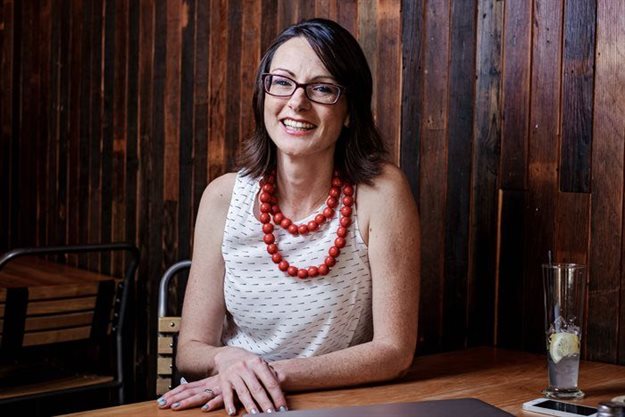
For years, companies viewed their investments in implementing social impact strategies as ‘feel-good’ or ‘compliance-driven investments’ instead of a must-do for their business, but in recent years, more companies are embracing an integrated approach, notes Paschal, doing good business as a business imperative, instead of a merely a side strategy and a box-ticking exercise.
According to research findings in the latest report of the annual Trialogue Business in Society Handbook, companies spent an estimated R10.2bn last year on the execution of social impact ventures in South Africa. That is a 5% year-on-year increase in nominal terms (2018: R9.7bn), and flat growth in real terms. This is not a surprise due to the subdued South African economy impacting on the social investment landscape.
Nedbank Private Wealth’s The Giving Report IV indicates that gifting in South Africa remained high. The report’s findings indicated that in 2018, 83% of all high net-worth individuals (HNI) donated money, time or goods to non-profits, individuals and other societal groups. This is a decrease in the percentage of HNI donating from the last report issued in 2015, however, the amounts contributed were of higher value.
With these statistics in mind, and as we set foot in a new decade marked by several societal challenges, Paschal notes that businesses are increasingly focused on effectively deploying their time and resources to ensure greater social impact.
“At Nation Builder, we strongly believe that the end goal should be kept in mind when building social impact strategies. Strengthening ecosystems that support the society they operate within is essential for business sustainability and long-term change. These systems are complex and therefore require partnership and collaboration to jointly run interventions that will ultimately result in systemic change,” Paschal explains.
“By understanding what it will take to stimulate and support the social economy, social impact decision-makers can envision and implement a long-term 20-20 vision that delivers real value to society, at the same time ensuring financial returns and business sustainability. That should be our goal: Achieving an inclusive society and economy for all,” she says.
She was encouraged by The Giving Report and the Trialogue Handbook’s findings that 36% and 72% of HNI and corporates, respectively, were intentionally measuring the social impact on their social investments.
Paschal also argues that we need to emphasise the quality of social impact measurements to get a view of what is and isn’t working in addressing our complex challenges in South Africa. “Unfortunately, most funders and NPOs have vastly different approaches to measurement, with no set principles or guidelines to underpin the process. As the industry matures, there is a call for alignment, which we will hopefully achieve in the next three to five years.”
According to the findings of the 2019 Trialogue Business in Society Handbook, only 56% of companies reported increased social impact expenditure in 2019, down from two thirds in 2017 and 2018. Paschal further notes that according to the report’s findings, the majority of companies (86%) claim to factor in shared value thinking into their social impact strategies. The reality is that many of the social investment departments are facing retrenchments, cut or stagnated budgets and are therefore needing to ensure that social impact is clearly a part of the greater business imperative. A difficult season in the funding landscape seems to be resulting in greater shared value thinking and a push towards being a key contributor in the overall corporate strategy.
At the recent World Economic Forum, it was clear that in the face of the fourth industrial revolution, businesses cannot ignore the social impact of their business or the interests of their wider stakeholders.
Paschal says: “Knowing where to focus your social impact endeavours need not be difficult, as we can look to the societal areas set out by the United Nation’s ambitious 17 Sustainable Development Goals (SDGs), which governments and businesses of all sizes can use to pinpoint the exact goal that they most closely align with.”
In South Africa, Trialogue lists the most supported development sectors as education (50%), social and community development (15%), food security and agriculture (9%) and health (7%). The Nedbank Giving report, however, found that HNI support social and community development (66%), religious institutions or causes (41%) and education (32%).
According to the IPASA 2019 Annual Review of South African Philanthropy, philanthropy toward higher education institutions across the country (11 universities were surveyed) amounted to R1.71bn in 2017. Of this, R1.1bn was through private philanthropic contributions and 72% of the total contributions were from within South Africa.
“It is encouraging to see the intense focus from the South African social investment and philanthropic communities on education, indicating a long-term view to equipping future generations to lead and participate in the local economy,” says Paschal.
She admits that although a selfless approach is indeed paramount, it must be combined with good stewardship and a constant focus on effectiveness.
Paschal encourages businesses eager to affect societal upliftment to join the Nation Builder community and learn how collaboration opportunities improve social impact through shared learning. For our country to flourish in 2020 and beyond, it is crucial that the business sector, in particular, takes hands in shaping the future of South Africa, she concludes.